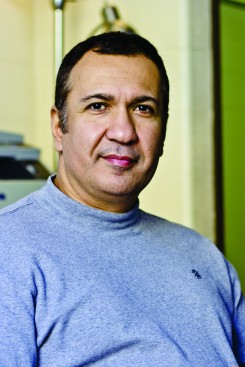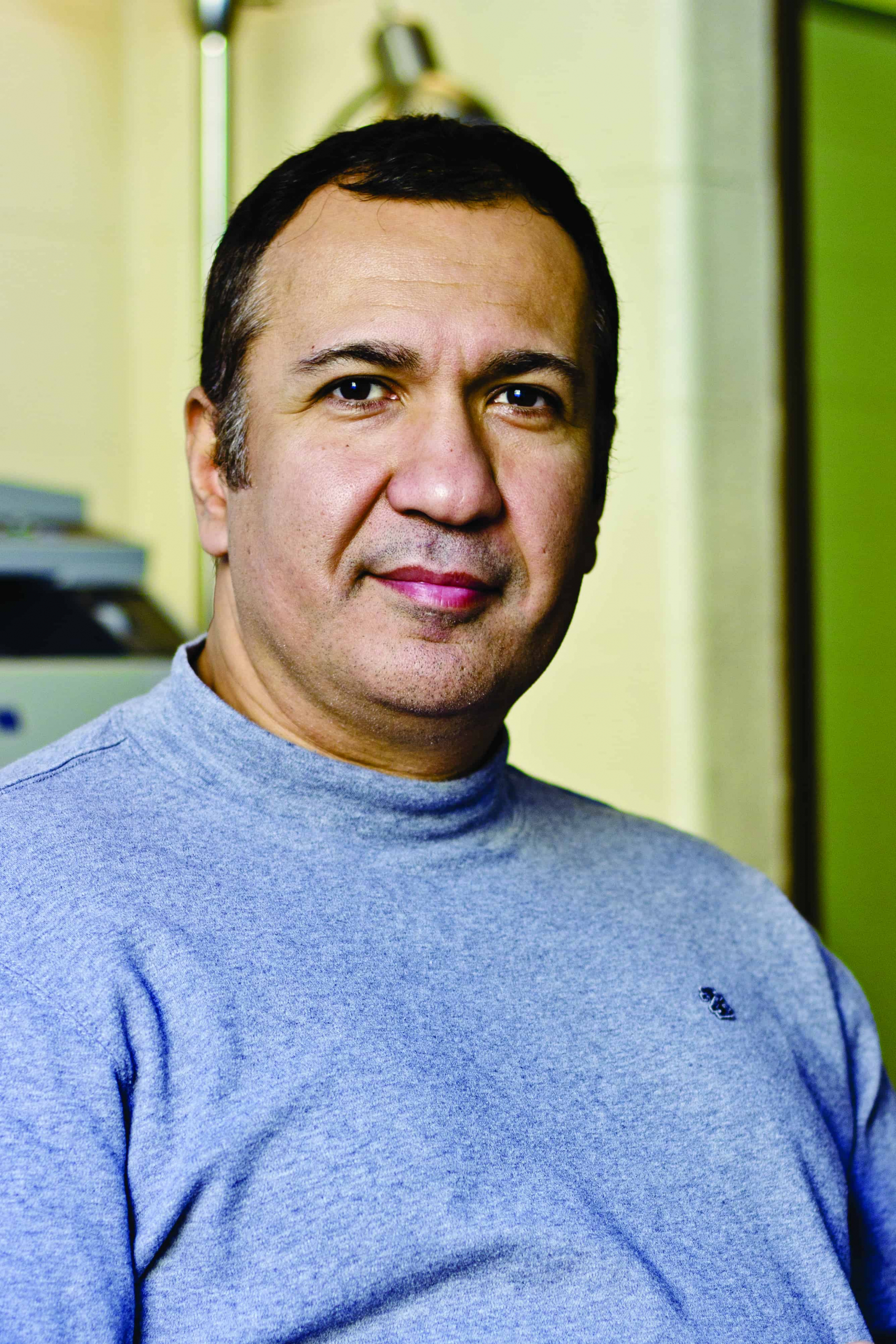Professor Tafarodi has been at U of T since 1996, and since then, he has been infamous for his adoption of a teaching style that’s open and that students can relate to. The Varsity got a chance to pick his brain and learn about his interests and thoughts concerning the roles of students and educators in post-secondary education.
 The Varsity: You study self-consciousness as “cultured” subjectivity. Could you elaborate on that?
The Varsity: You study self-consciousness as “cultured” subjectivity. Could you elaborate on that?
Romin Tafarodi: [W]e have a constantly evolving kind of subjectivity, and our cultural practices, our cultural institutions, and our discourses are all playing into how our subjectivity and our selves are being formed and reformed historically. So, in this alternative casting, the self is a historical object, it’s something that comes to be, [and] it reflects the cultural world in which it grows… [What] we’re doing as scientists is not so much uncovering some truth that’s out there independent of us but in studying and talking about who we are; we’re refashioning ourselves. We’re changing, reflexively changing who we are and the kinds of experience that define our subjectivity.
TV: From the perspective of an educator, do you have any advice or life lessons you’ve learned for students who want to go to grad school for psychology?
RT: Don’t be pressured into acquiescence and into the [false notion] that a field is a fixed entity and that’s all it could be for you as a graduate student. Part of what any student can contribute to a field is changing it, changing how it defines itself.
TV: That’s what every prominent psychologist has ever done… They come and they reformat what it used to be.
RT: Now you see that that actually interlocks with questions about how we educate, so, a question that rises out of that is, “How do we promote in students that kind of alternative understanding?”
TV: It’s hard to do that when you just measure them by their grades. How can you be innovative if you take a chance and do something, but you know you’re not going to do well?
RT: I’ve been very influenced by a number of educators who have very progressive ideas about education, what it could or shouldn’t be. Paulo Freire was a Brazilian educator who was a revolutionary educator and a Marxist and who wrote a wonderful book called Pedagogy of the Oppressed, where he talked about how most effectively to educate those people who are in the least advantaged positions in society… I try to move away from what Freire called this “banking” approach to education, where you have this divide between teacher and student, and you have an authoritative teacher that’s depositing knowledge in the heads of students… [T]he heart of critical theory and critical thought in general … means to try to penetrate through the illusion that things are the way they are because they couldn’t be otherwise — to penetrate through that and to recognize that things are the way they are because of historical processes … [There are] many of us who feel that university can do more than [just help] students adjust to a world as it is; more importantly, it’s about providing students with tools and inspiration to change that world into something better. I think it’s more hopeful to think that you can actually change the world, to create new places to be.
TV: A lot of people think that that’s not possible. They think that they have to be like Albert Einstein to do anything.
RT: The tragedy of that is that the very people who are espousing that point of view here are the most advantaged in society… So when we see it at this level, it’s particularly troubling for someone like me. Remember that university is supposed to be one of the seats of progressivism, if not the paramount one. The pressing question that should be asked in that context is “why”? … If each individual student looks at their own unhappiness, their own troubles, and says “Okay, this is about me, this is about me trying to adapt to my world. Let me go off in private and try to deal with this — my depression, my anxiety, my insecurity, my shame, whatever it is.” … A whole bunch of different atoms all over the place, dealing with things in their own way and misperceiving their problems as purely private and personal, is not going to lead to any collective kind of efforts for structural change. The way it happens is utilizing the space of the university as a public sphere for dialogue between people… The point is that when you come together and you address your problems within any kind of public sphere, there’s the possibility for political action, for change.
TV: What’s the most useful lesson that you’ve learned from a teaching perspective?
RT: I think that one of the most important things I’ve learned is how essential it is to find myself through others — to find myself through the voices and the emotions of students and to allow them to find themselves through mine. So once again, there’s that mutuality that educators like Freire talked about: the fact that, really, in the best context, students are teachers, and students and instructors are both teachers and students at the same time… [This] goes back to Platonic teaching and to Socratic teaching: [Students learn that] within their own thinking they came to a particular vision or understanding or awareness that was facilitated by the classroom experience by the instructor but wasn’t solely determined by the instructor. That’s really essential to me and it’s what I try to do in classrooms. It’s getting harder because classrooms are getting bigger. It’s hard to have one-on-one interaction when you have 300 students; [that] kind of teaching is popular, you can understand, for bureaucratic reasons because it’s very efficient…
I would argue that it’s probably the most debased form of teaching that we can pursue as a university… The best kind is when you have 10 people arranged in a circle, one of them happens to be an instructor and they’re involved in a dialogue about things they’ve found [valid] of concern. That’s getting hard to do. We have 65,000 students; we have an increasingly overburdened faculty trying to teach them and fewer spaces to teach them in than ever before and less time to do it. It’s getting hard to uphold the kind of teaching that I think is valuable, that many people have thought valuable for many centrues. Those are real challenges faced by the university.
TV: Study designs and other technicalities aside, do you have any burning questions?
RT: My burning question, one that I think about a lot, is where we’re heading. What are we becoming? Part of the reason that I started teaching the media course was in fact a fascination with that question. The recognition that the kinds of information-communication technologies that we’re seeing popularized today and becoming so much a part of social and private life may be changing the way we experience ourselves So, the pressing question would be where are we going? Where are we headed? How is the experience that we have of being human, of thinking and being aware of ourselves — how is that going to be different in 100 years? I think that’s something that we need to be thinking about now because the ways in which it becomes different, the ways in which it evolves, will be determined in large part by what we’re doing now. The way of life that we’re supporting or not supporting now will have a bearing on what we become. Our responsibility as a forward-looking society is to try to steer that kind of development as best we can. For example, media literacy is not just about defending yourself against advertisements or learning the underlying mechanics of politics or economics of how media institutions run. Media literacy is also about concern for the future, concern about how we can intelligently and reasonably steer our course into a very uncertain future.


